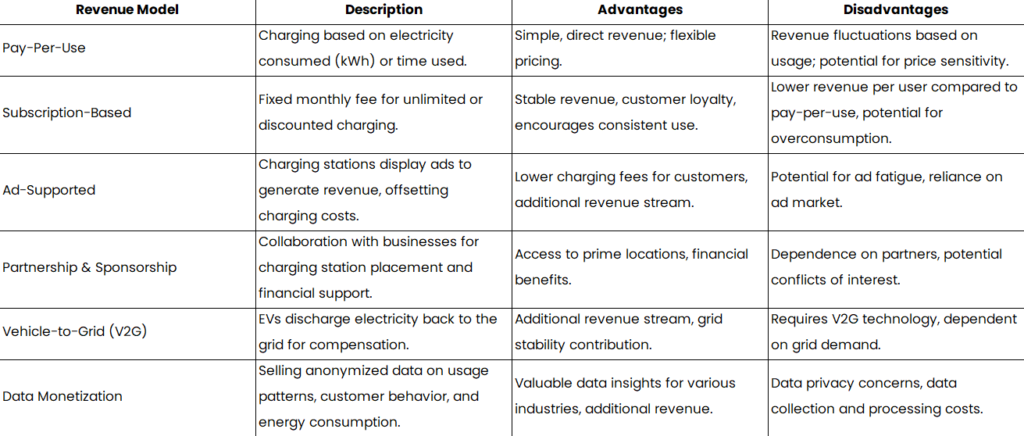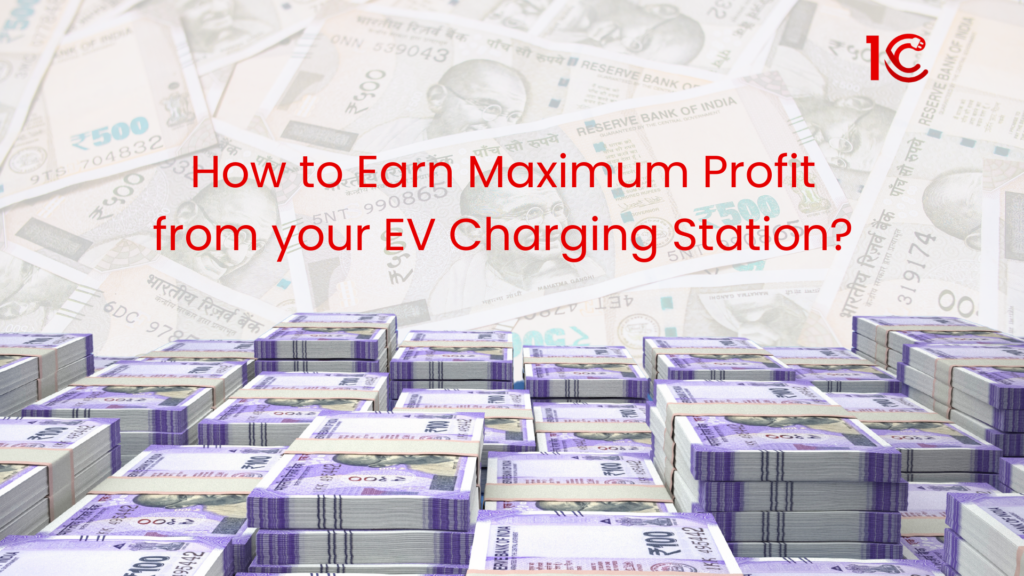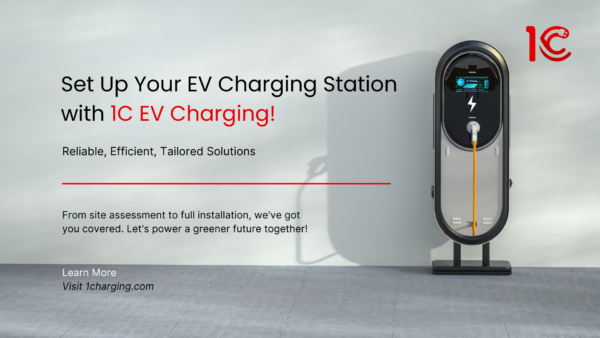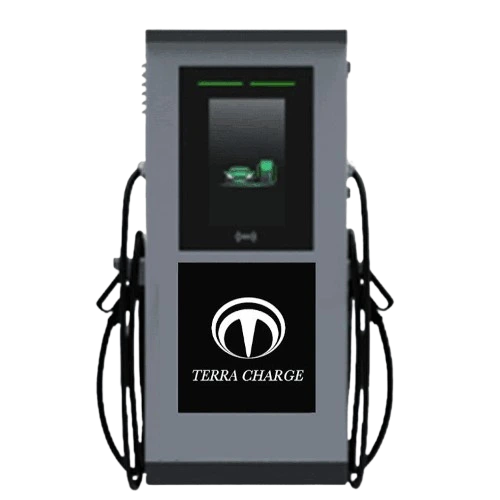As the world shifts towards cleaner and more sustainable energy sources, electric vehicles (EVs) are becoming increasingly popular. With this surge in EV adoption, the demand for EV charging stations has also gone up, presenting an opportunity for businesses and entrepreneurs. Understanding the various revenue models for EV charging stations is crucial for stakeholders aiming to capitalise on this burgeoning market.

1. Pay-Per-Use Charging:
The most straightforward revenue model is the pay-per-use system, where EV owners pay for the amount of electricity they consume. Charging stations can set rates based on kilowatt-hours (kWh) consumed or the time spent charging. This model is similar to the traditional fuel station model and provides a clear and direct revenue stream. Charging station operators can adjust prices based on peak and off-peak hours to manage demand and optimise profits.
2. Subscription-Based Charging:
Subscription models offer EV owners unlimited or discounted charging for a fixed monthly fee. This model ensures a steady revenue stream and promotes customer loyalty. Different tiers of subscriptions can cater to various user needs, such as unlimited charging for frequent users or discounted rates for occasional users. This approach also encourages more consistent use of charging infrastructure, maximising its utilisation.
3. Ad-Supported Charging:
Integrating advertising into EV charging stations presents a dual revenue opportunity. Digital screens at charging points can display advertisements while vehicles are being charged. Companies can also use the charging station premises for physical ads. This model allows for lower charging fees for customers, as advertising revenue subsidises the costs. It’s a win-win scenario where businesses gain exposure, and EV owners benefit from more affordable charging.
4. Partnership and Sponsorship:
Collaborating with businesses, such as retail chains, restaurants, and shopping malls, can be mutually beneficial. These partners can sponsor charging stations, providing them at their locations to attract EV-driving customers. In return, charging station operators receive financial support or exclusive location access, enhancing their network’s visibility and convenience.
5. Vehicle-to-Grid (V2G) Services:

An innovative revenue model involves using EVs as mobile energy storage units. Through Vehicle-to-Grid (V2G) technology, EVs can discharge stored electricity back to the grid during peak demand periods. Charging stations can act as intermediaries in this process, earning revenue by facilitating the transfer of electricity between EVs and the grid. This model not only provides an additional income stream but also contributes to grid stability and energy efficiency.
6. Data Monetization:
EV charging stations generate significant amounts of data related to usage patterns, customer behaviour, and energy consumption. This data can be anonymised and sold to third parties, such as energy companies, automotive manufacturers, and urban planners. The insights derived from this data are valuable for optimising energy distribution, enhancing vehicle design, and planning future infrastructure developments.
In the competitive landscape of EV charging, companies like 1C can play a pivotal role. By offering a comprehensive suite of services tailored to the needs of charging station operators, 1C enables businesses to implement and optimise these revenue models effectively. From providing advanced charging hardware to offering software solutions for seamless billing and data management, 1C ensures that operators can maximise their revenue potential while delivering a superior customer experience. By partnering with 1C, charging station operators can stay ahead of the curve, ensuring profitability and sustainability in the rapidly evolving EV market.
Share this article:
Planning to set up your EV Charging Station? Consult with our experts today!
Follow us for more such content!













